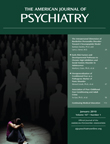This is a readable and well-researched book by the founder of cognitive-behavioral therapy (CBT), and his colleagues. British researchers applied Aaron Beck's methods to the treatment of schizophrenia, beginning in the 1980s, and many clinicians and researchers have been surprised and overjoyed to discover that, at last, we have a psychological treatment of proven efficacy for a psychotic disorder. So impressive is the research evidence for the effectiveness of the approach that CBT for psychosis has been established as one of the Patient Outcomes Research Team (PORT) standards for the treatment of schizophrenia (1).
The book opens with a dramatic—and now well-known—illustration of the effectiveness of cognitive approaches in reducing long-standing psychotic symptoms. Nobel prize-winning mathematician John Nash developed schizophrenia at the age of 30 and, for years, haunted the halls of Princeton, an eccentric figure, "oddly dressed, muttering to himself, writing mysterious messages on the blackboard" (2, p. 87). Nash primarily attributed his subsequent recovery to, what might be termed a self-administered course of cognitive therapy. He convinced himself that his auditory hallucinations were a product of his own mind and that his grandiose and paranoid beliefs were improbable, thus making possible his eventual improvement.
In the opening chapter, the authors present the basic conceptual cognitive model—that beliefs precede and largely determine emotional and behavioral reactions—and describe the origins of CBT for psychosis. What follows is an excellent background review of the nosology and epidemiology of schizophrenia and its anatomical and functional abnormalities, including an update on the cognitive impairments in the condition. The chapter goes on to provide information about outcomes in schizophrenia and to summarize the magnitude of the benefits that have been found in controlled trials of CBT. Cognitive therapy (with medication), the authors report, confers from a half to a third of a standard deviation more improvement in psychotic symptoms than control interventions, and these benefits have been found to endure into the posttreatment period.
After the opening chapter, the book is organized into theoretical and treatment sections. Many readers will be drawn to the later chapters dealing with assessment and treatment approaches. We learn how assessment for cognitive therapy is conducted and how the patient may be engaged in a viable therapeutic relationship. Successive chapters address the assessment and treatment of delusions, hallucinations, thought disorder, and negative symptoms. The book is studded with revealing examples of assessment and intervention techniques. A brief illustration from the chapter on the cognitive conception of delusions serves to illustrate relationship building and the beginning of a process of symptom reframing:
Therapist: Can you tell me your name?
Patient: I'm the Lord, king of the universe.
Therapist: How do you feel—being God?
Patient: Pretty powerful, I guess.
Therapist: Any downside to being God?
Patient: I guess I'm so high up, I don't have anyone to talk to.
Therapist: How does that make you feel?
Patient: Sort of lonely, I guess.
Therapist: How long have you felt lonely?
Patient: I suppose—all my life. (p. 93)
Therapists and psychiatrists will discover many approaches that will be useful in working with patients with psychosis in a variety of settings and situations beyond the formal cognitive therapy session. For the patient who is distressed by negative auditory hallucinations, for example, the reader will learn how to tackle threatening and commanding voices, how to deal with delusional and nondelusional beliefs about hallucinations, and how to reduce the torment that the voices induce. The authors provide strategies for questioning the evidence in support of delusional beliefs (something we were all taught not to do), for helping the patient build alternative (and less counterproductive) beliefs, and for targeting the nondelusional core beliefs that underpin the false ones. The authors' account of cognitive approaches to tackling negative symptoms and thought disorder is somewhat less persuasive. We strive to find ways to help our most challenged and tortured patients, and now we have an effective new tool. This rich and powerful book will be valuable to anyone in the field of mental health who works with people with psychotic disorders and who would like to be able to do more to help them.

